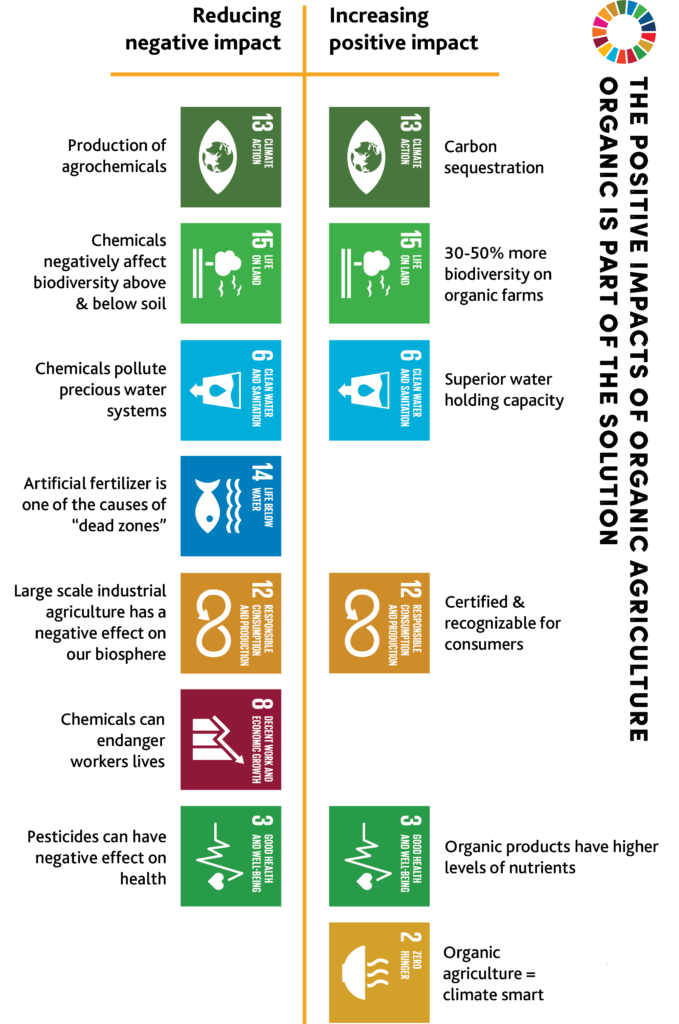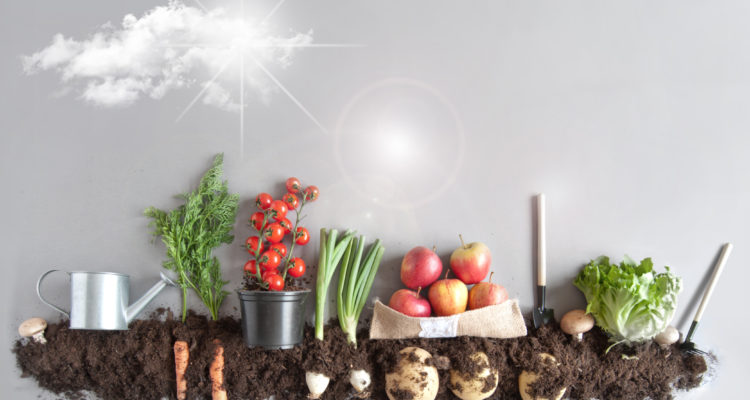Dutch study points out adopting organic agriculture is crucial to meeting the United Nations’ Sustainable Development Goals (SDGs).
◊ By Benefit Publishing Bureau
Note: To find all organic brands, organic product wholesale suppliers, organic shops and organic farms in India, buy Organic Directory
The report, Organic Agriculture and the Sustainable Development Goals – Part of the Solution, which was launched on September 25 to mark the official anniversary of the SDGs, concluded that switching to organic agriculture can achieve 8 of the 17 SDGs. These include several of the most important goals, including taking urgent action to combat climate action and its impact, protecting biodiversity, addressing hunger and ensuring clean water for all.
Commissioned by Dutch organic specialist, Eosta, the study, which was carried out by Simon de Schaetzen, a researcher at the Netherlands-based University of Twente, and is being shared across the global organic sector, looks at how organic agriculture can contribute towards meeting the SDGs. Based on meta-analysis, the research concludes that a move towards organic must play a central role if the UN objectives are to be met and we have any chance of tackling the many grave challenges facing the planet.
The report comes exactly four years after 150 world leaders adopted a global transformative agenda for sustainable development, committing to working together to achieve 17 core goals by 2030 in order to benefit the generations of today and tomorrow. The SDGs build on the Millennium Development Goals and are closely interconnected.

The report concludes that organic agriculture can play a vital role in achieving 8 of the 17 Sustainable Development Goals, including: Zero Hunger; Good Health and Wellbeing; Clean Water and Sanitation; Decent Work and Economic Growth; Responsible Consumption and Production; Climate Action; Life Below Water; and Life on Land. Infographic courtesy of Eosta
According to Eosta’s CEO, Volkert Engelsman, the global organic sector can use the report to inform policy makers, retailers and the public about the need to shift towards organic agriculture.
However, when it comes to achieving the SDGs, he believes we are not moving fast enough. Engelsman says, “Right now, we are in the middle of a huge climate, health and biodiversity crisis and it is important we focus on realistic practical solutions. We have always been convinced about the positive contribution of organic agriculture and wanted the independent research to look at the issue. We are delighted with the conclusion that organic has so much of a positive impact. Together with other organic organisations in Europe, Asia and North America, we will use the report to further promote and develop sustainable organic agriculture all around the globe.”
Based upon more than 50 scientific publications, including numerous FAO and UN studies, the report concludes that organic agriculture can play an important role in achieving 8 of the 17 SDGs. These include: Zero Hunger; Good Health and Wellbeing; Clean Water and Sanitation; Decent Work and Economic Growth; Responsible Consumption and Production; Climate Action; Life Below Water; and Life on Land.
Together, with a broad coalition of organic associations including IFOAM, Naturland (Germany), Organic Sweden, Pro Luomu (Finland), Organic Denmark, Bio Austria, Bioforum Vlaanderen, Wallonie, Irish Organic Association, Bionext, Assobio (Italy), Ecovia (Spain) Oikos (Norway) and numerous other organisations globally, Eosta is promoting the results and is making them available for everyone in the organic sector that wants to share the positive proactive sustainable story of organic agriculture.
Please download the Report – ‘Organic Agriculture and the Sustainable Development Goals – Part of the Solution’ and share as widely as possible.



Leave a Reply